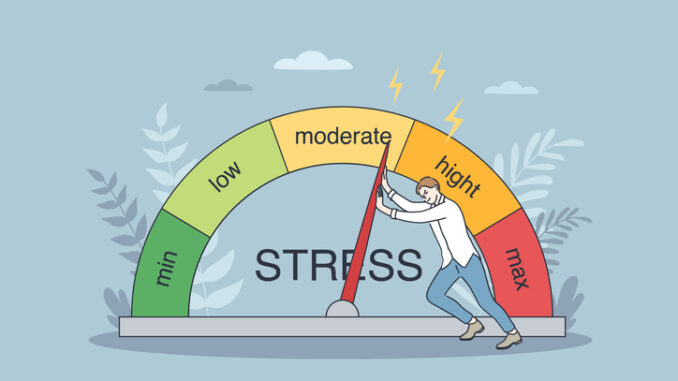
Most people will experience episodes of anger which feel manageable and don’t have a big impact on their lives. Learning healthy ways to recognise, express, and deal with anger is important for our mental and physical health
CREDIT: This is an edited version of an article that originally appeared on Mind
When is anger a problem?
Anger only becomes a problem when it gets out of control and harms you or people around you. This can happen when:
- you regularly express your anger through unhelpful or destructive behaviour;
- your anger is having a negative impact on your overall mental and physical health;
- anger becomes your go-to emotion, blocking out your ability to feel other emotions;
- you haven’t developed healthy ways to express your anger.
What is ‘unhelpful’ angry behaviour?
How you behave when you’re angry depends on how well you’re able to identify, and cope with, your feelings and how you’ve learned to express them (see our page on causes of anger for more information). Not everyone expresses anger in the same way – for example, some unhelpful ways you may have learned to express anger include:
- Outward aggression and violence – such as shouting, swearing, slamming doors, hitting or throwing things and being physically violent or verbally abusive and threatening towards others.
- Inward aggression – such as telling yourself that you hate yourself, denying yourself your basic needs (like food, or things that might make you happy), cutting yourself off from the world and self-harming.
- Non-violent or passive aggression – such as ignoring people or refusing to speak to them, refusing to do tasks, or deliberately doing things poorly, late or at the last possible minute, and being sarcastic or sulky while not saying anything explicitly aggressive or angry.
What can I do to manage my anger?
It can be frightening when your anger overwhelms you but there are ways you can learn to manage your anger when you find yourself in difficult situations.
Look out for warning signs
Anger can cause a rush of adrenaline through your body so, before you recognise the emotion, you’re feeling things you might notice such as:
- your heart is beating faster;
- your breathing is quicker;
- your body is becoming tense;
- your feet are tapping;
- you’re clenching your jaw or fists.
Recognising these signs gives you the chance to think about how you want to react to a situation before doing anything. This can be difficult in the heat of the moment, but the earlier you notice how you’re feeling, the easier it can be to choose how to manage your anger.
Buy yourself time to think
Sometimes when we’re feeling angry we just need to walk away from the situation for a while; this can give you time to work out what you’re thinking about the situation, decide how you want to react to it and feel more in control. Some ways you can buy yourself time to think are:
- Counting to 10 before you react.
- Taking yourself out of the situation by going for a short walk – even if it’s just around your block or local area.
- Talking to a trusted person who’s not connected to the situation, such as a friend, family member, counsellor or peer support group. Expressing your thoughts out loud can help you understand why you’re angry and help calm you down. If you don’t feel comfortable talking to someone you know, you can confidentially call the Samaritans 24 hours a day to talk about anything that’s upsetting you. (For other organisations that can help please see our useful contacts page.)
Try some techniques to manage your feelings
There are many ways to calm down and let go of angry feelings, depending on what suits you and what’s convenient at the time you are angry.
- Breathe slowly – try to breathe out for longer than you breathe in and focus on each breath as you take it.
- Relax your body – if you can feel your body getting tense, try focusing on each part of your body in turn and tense and then relax your muscles. See our pages on relaxation for more tips on how to relax.
- Try mindfulness techniques – mindfulness can help you to be aware of when you’re getting angry and can help calm your body and mind down. See our pages on mindfulness to learn more.
- Exercise – try to work off your anger through exercise. Sports like running or boxing can be really helpful for releasing pent up energy.
- Use up your energy safely in other ways – this can help relieve some of your angry feelings in ways that don’t hurt yourself or others. For example, you could try tearing up a newspaper, hitting a pillow, or smashing ice cubes in a sink.
- Do something to distract yourself mentally or physically – anything that completely changes your situation, thoughts or patterns can help stop your anger escalating.
Talking therapy and counselling
Talking therapy and counselling involves talking about your problems with a trained professional, such as a counsellor or psychotherapist, who can help you explore the causes of your anger and ways to manage it. This can help you work through your feelings and improve your responses to situations that make you angry. There are different types of talking therapies, and some are specifically tailored to anger issues.
Counselling is usually a short-term treatment where you might talk through a specific issue – such as outbursts of anger with your partner or in the workplace – and try to understand how you could manage those situations differently. Some workplaces, higher education institutions, local charities and GP surgeries offer free or low-cost counselling services to their employees, students or local residents.
Psychotherapy often lasts longer than counselling and tends to go deeper into past experiences. Your focus here may be on learning more about yourself to help you understand why you express your anger in the way you do, or why certain situations make you angry.
Cognitive behavioural therapy (CBT) is a highly-structured, short-term form of talking therapy that examines how your thoughts, feelings and behaviours affect each other; it aims to teach you practical skills to change this. CBT is the most commonly offered talking treatment on the NHS. You could also try to learn CBT techniques by yourself by accessing self-help books from your local library, or online through free apps and videos.
For more information about different kinds of talking treatments, and how they can help, see Mind’s pages on talking therapies.


Be the first to comment